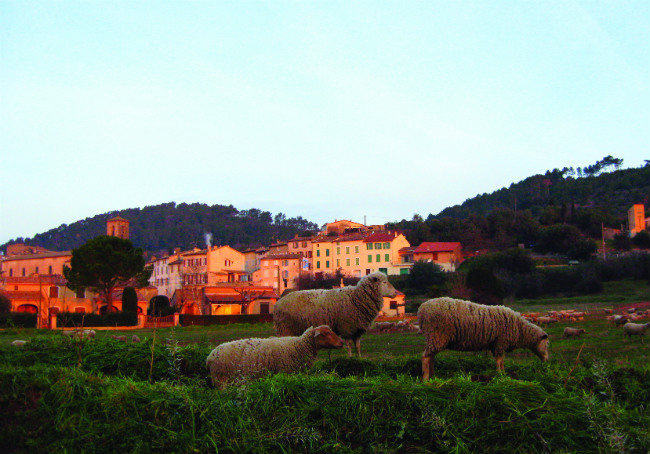Le Dernier Mot: Between You, Me and the Gatepost
The day I stopped believing I was a bad student, I could finally start to relax and absorb the lessons floating all around me. Idioms were a new and delightful discovery; expressions such as revenons à nos moutons (‘let’s come back to our sheep’, i.e. get back to the subject) took hold of my soul, bubbling up through me in delight and possibility.
Certain colloquialisms were so full of quirky imagery, transporting me beyond the classroom to see and perceive the world in a more light-hearted way. That the French refer to window shopping as ‘licking windows’ (or ‘window licking’ – either way is funny!) taught me that they had a refreshing sense of humor behind their mysterious exteriors. This self-deprecating, humble side of the French is especially apparent in their turns of phrase.
“Elle a des oursins dans la poche,” a friend whispers, and I’m no longer intimidated by the blonde bombshell at the party – I am amused! To have sea urchins in one’s pocket is to be ‘a cheapskate’. The two images are funny (and heartening) ways to consider the knock-out at the party.
Though I still put the French high up on a pedestal, I can now reach their outstretched hands, joining them in this language dance. “Être aux petits oignons?” (“Perfect?”) they say, spinning me round and round. “Don’t be fooled. We are just as goofy as the rest of the world. We don’t take ourselves as seriously as you might think!”
As I fell in love with the French language, a funny thing happened: I developed a new appreciation for l’anglais. Suddenly, all those familiar English idioms projected themselves across the Technicolor screen of my mind. How colourful it was; I’d never seen English this way before!
Having developed a belief that the French have a word for everything and that their expressions are the liveliest, I’ve come to discover that some idioms are much more interesting in English…
Between you, me and the gatepost. There’s something adorable about this expression, yet it translates boringly in French as soit dit entre nous – just between us. (Don’t they have a more charming match for this one? At the very least, can’t we have a word-for-word equivalent: C’est entre toi, moi et le montant de porte?)
Kiss and Fly (name of airport drop-off zone): At the airport in Nice, the sign above the temporary parking curb reads ‘Kiss and Fly’. How delightful! But what a let-down to discover the translation beneath the sign: Dépose Minute – one minute drop-off.
To get one’s knickers in a twist. Personally I find the ‘keep your hair on!’ expression just as funny. Either way, the French translation ‘to fly off in a rage’ doesn’t quite cut it. (Although ‘to get into a tizzy’ is kind of funny! How about we use that one?)
And Bob’s your uncle. I’ll end with a curious expression I’ve only heard since moving to France. The British expats use it – whether happily licking windows or getting their knickers in a twist. I admit that I just don’t get ‘…and Bob’s your uncle.’ But I have a hunch that, for this translation, Google – c’est ma tante!
From France Today magazine
Share to: Facebook Twitter LinkedIn Email
Leave a reply
Your email address will not be published. Required fields are marked *






REPLY